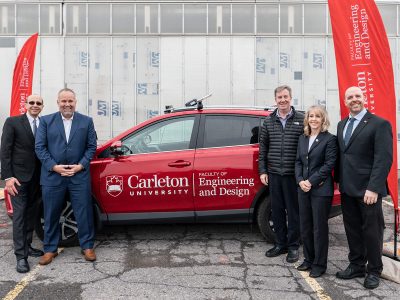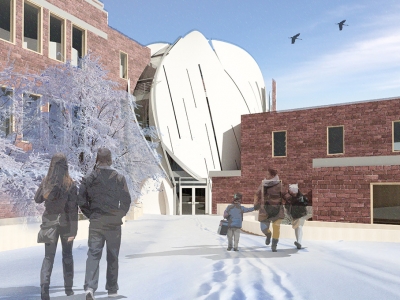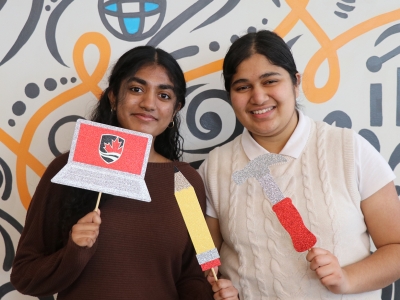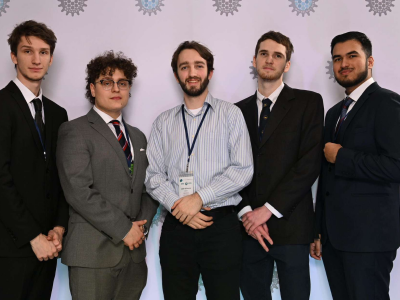By Adam Landry
From safely delivering vital supplies to remote communities using large-scale drones, to training the next generation of unmanned aerial vehicle (UAV) experts, two Carleton initiatives funded by the Natural Sciences and Engineering Research Council (NSERC) will soon take to the skies at Ottawa’s state-of-the-art Area X.O facility (formerly
known as the Ottawa L5 Connected and Autonomous Vehicle (CAV) test facility) in Nepean, ON.
Having recently been awarded $50,000 through NSERC’s Alliance COVID-19 Grant program – established this past spring to encourage collaboration between academic researchers and industry to overcome challenges related to the ongoing COVID-19 pandemic – Carleton mechanical and aerospace engineering professor Jeremy Laliberté is partnering with Canadian UAV firms Romaeris Corporation and Sky Canoe to develop decontamination solutions for large-scale delivery drones that each company will soon deploy to help remote communities maintain their supply chains of essential goods and medicines.
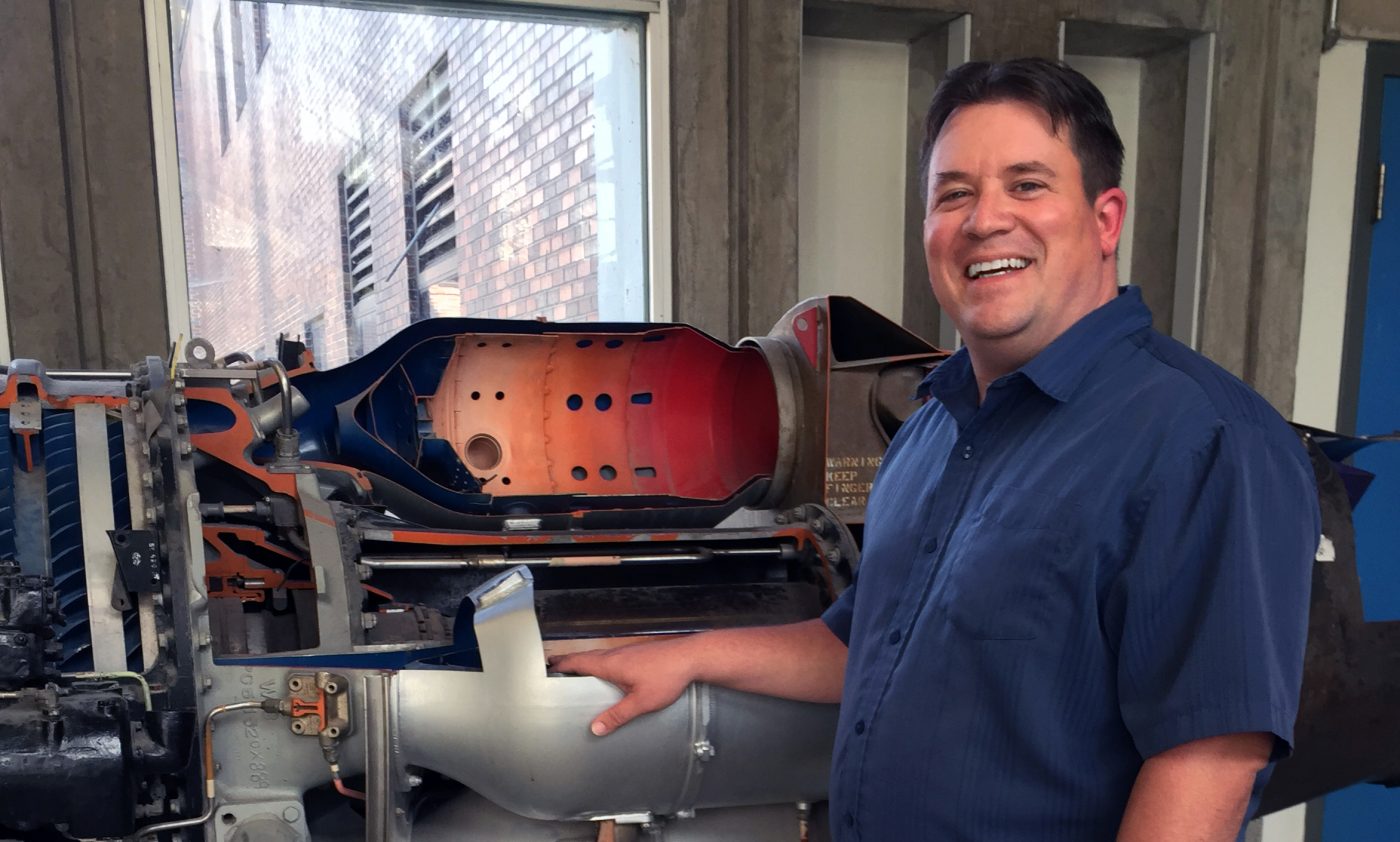
Professor Jeremy Laliberté
The joint initiative will see Carleton experts work with Romaeris and Sky Canoe to develop rapid decontamination strategies for aircraft that may have been exposed to the SARS-CoV-2 coronavirus responsible for COVID-19, which is known to be able to survive on surfaces such as metal and plastic for up to several days.
“Given the planned pace of these supply flights and rapid turn-around times on the ground, there are many surfaces on drone aircraft that will be touched by personnel at both departure and arrival locations within short intervals of only a few hours,” says Laliberté, who also received one of Carleton’s all-new CU COVID-19 Rapid Research Response Grants that were launched this past spring.
While high standards of cleanliness are necessary in order to reduce the risk of transmission between flights, Laliberté says that more research is needed to determine how repeated exposure to decontamination chemicals may affect the safety and performance of UAVs and their components.
“Just like larger aircraft, drones will need to be cleaned and decontaminated regularly,” he explains. “Part of our work will be to ensure these processes won’t pose any risk to the airworthiness of the aircraft.”
First opening its doors in May 2019 under the Ottawa L5 name, Area X.O was spearheaded by Invest Ottawa as the first integrated CAV test environment of its kind in North America. With both Carleton and Romaeris already having a foothold at the facility (and Carleton having newly renovated its on-location research space), the cutting-edge facility accommodating research on autonomous vehicles and systems, UAVs, connected and intelligent infrastructure, 5G wireless networks and more will be used to evaluate the project’s drone prototypes and decontamination strategies.
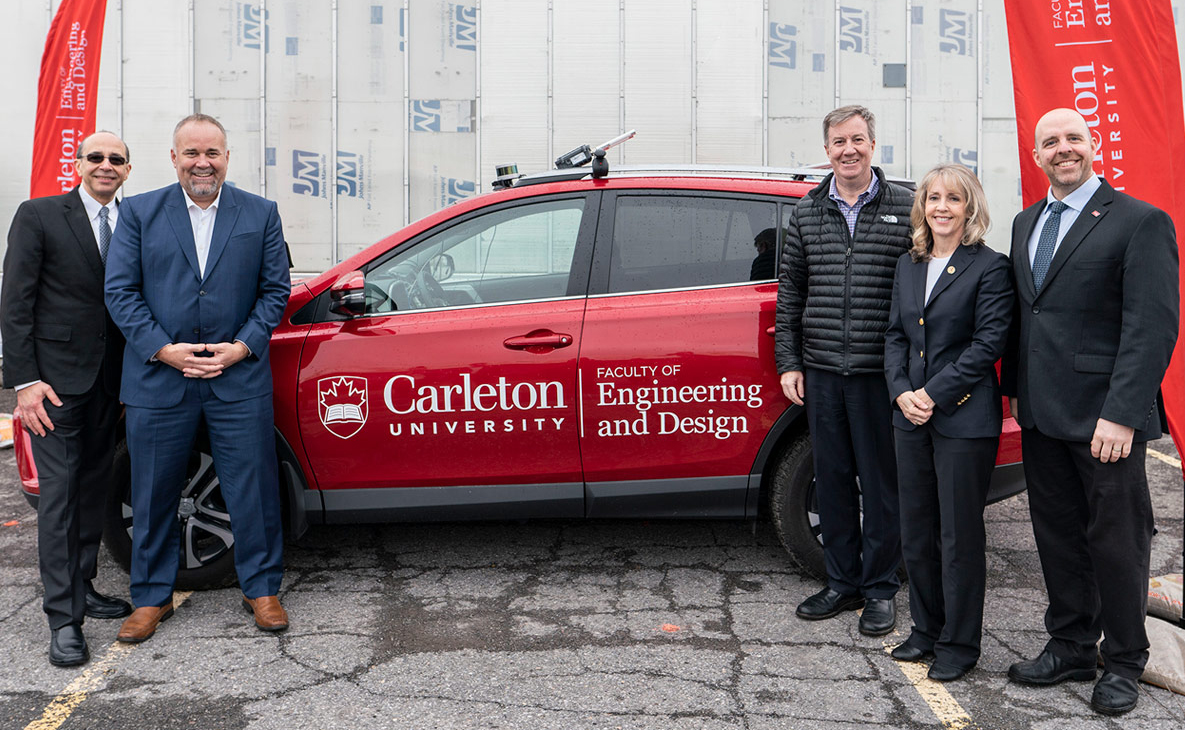
(Left to right) Rafik Goubran (Vice-President, Research and International, Carleton University), Todd Smith (Ontario MPP for Bay of Quinte and former Minister of Economic Development, Job Creation and Trade), Ottawa Mayor Jim Watson, Merrilee Fullerton (Ontario MPP for Kanata-Carleton and former Minister of Training, Colleges, and Universities), and Benoit-Antoine Bacon (President and Vice-Chancellor, Carleton University) at the grand opening of Area X.O (formerly known as the Ottawa L5 Connected and Autonomous Vehicle test facility) in Nepean on May 17, 2019 — the first integrated CAV test environment of its kind in North America.
“We are very pleased to be cooperating with Carleton University on this important research at the Ottawa Area X.O site,” says Anthony Pizarro, President of Romaeris Corporation. “Our goal is to show how totally safe procedures can be developed to the benefit of everyone.”
Understanding the long-term scope of the pandemic, Pizarro hopes the project will help demonstrate how UAVs can be play a key role in ensuring communities have access to vital supplies in the era of COVID-19.
“Cargo supply chains are facing a variety of challenges during this pandemic,” he says. “Extra capacity provided by long-range cargo drones that require only minimal human contact could be an important part of the solution.”
Also known as remotely piloted aircraft systems (RPAS), each of Romaeris’ and Sky Canoe’s large-scale UAVs are capable of transporting cargo exceeding 250 kg, making them ideal for delivering goods and supplies to remote and rural locations, including isolated Indigenous communities who have been adversely affected by the pandemic.
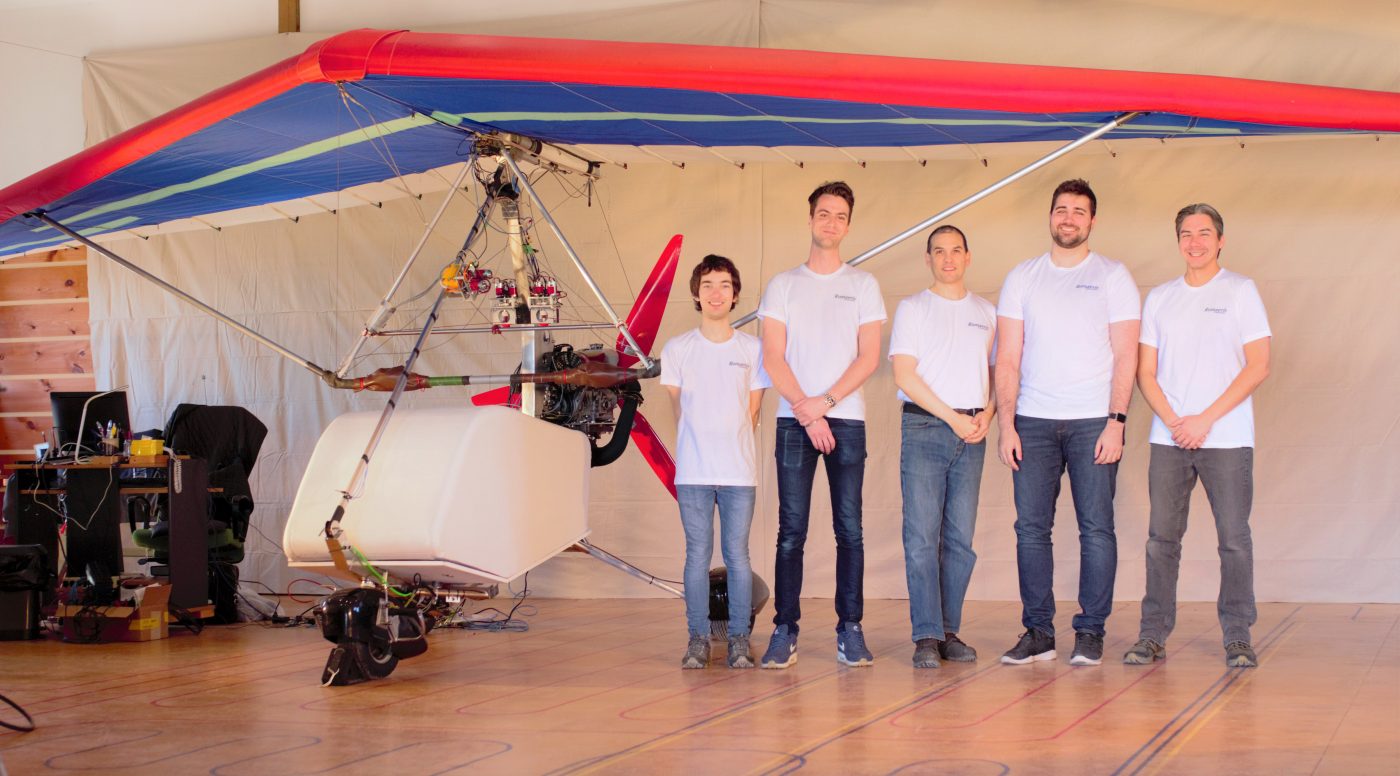
(Left to right) Carleton graduates Jaye Mangione (BEng/18) and Luc Mimeault (BA/18), Romaeris president and co-founder Anthony Pizarro, Nathaniel Mailhot and Adam Doerwald with Romaeris’ cargo UAV prototype.
“Large delivery drones with high freight capacity will be crucial for maintaining mainstream national supply chains, minimizing cost escalations and reducing aircraft shortages,” says Sky Canoe Co-Founder and President, Dale George.
“We are delighted to work in partnership with Romaeris, Ottawa’s Area X.O facility and professor Laliberté’s team at Carleton to help change the way we transport goods in a manner that will positively affect the lives of millions – especially those who live in remote communities without road or airport access.”
Knowing that remote communities across Canada and abroad are facing immediate and ongoing needs for essential supplies, Romaeris and Sky Canoe plan to integrate the newly developed decontamination processes into their respective RPAS operations as soon as they are finalized.
“In the very short term, this will enable both companies to safely clean and disinfect aircraft during ground testing, flight operations and maintenance,” says Laliberté. “In continuing our testing at Area X.O, the knowledge we gain through this project will also enable the development of new drones that are designed for regular decontamination from the outset.”
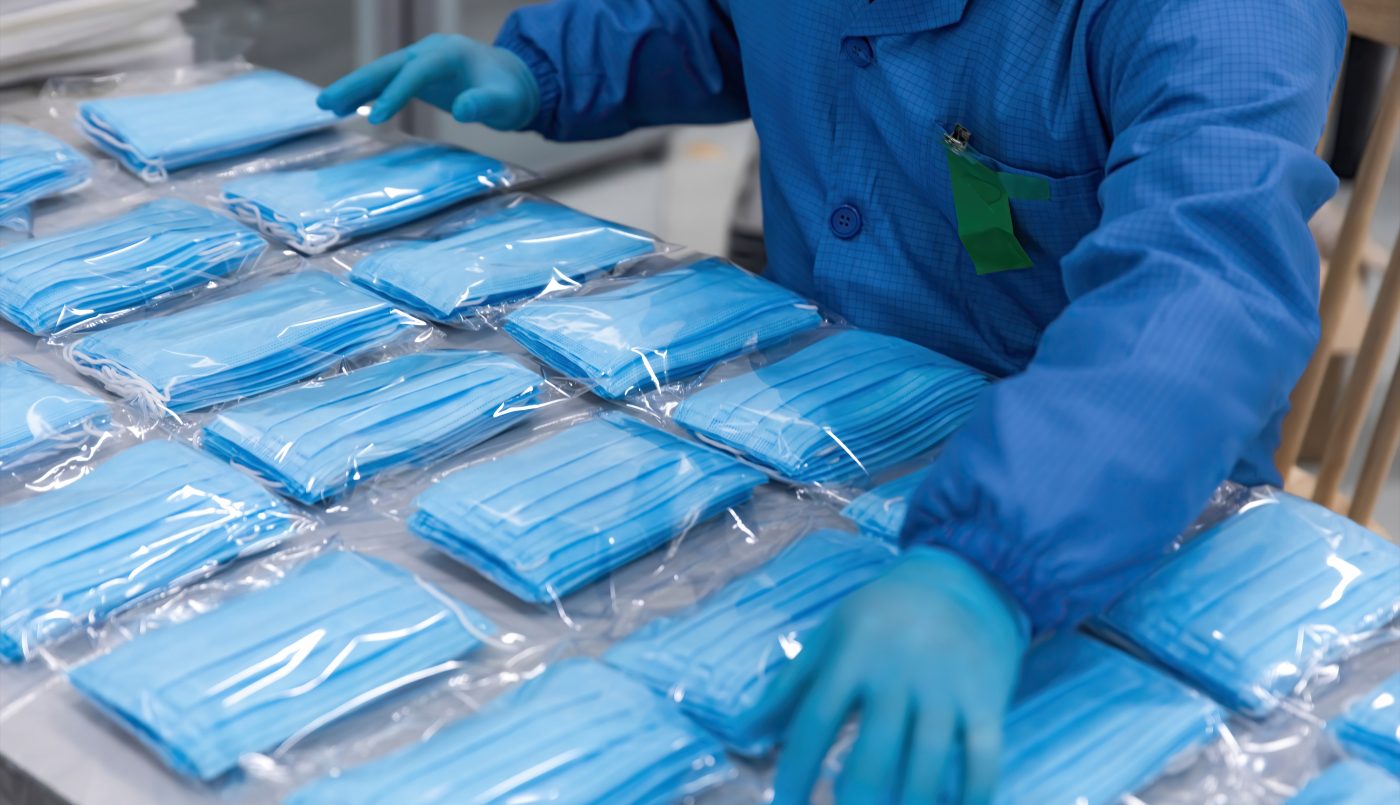
Once finalized, Romaeris and Sky Canoe plan to integrate newly developed decontamination processes into independent large-scale delivery drone operations, enabling both companies to safely equip remote communities with essential goods and supplies, including medicines and personal protective equipment (PPE).
Laliberté’s UAV research with Romaeris and Sky Canoe isn’t the only NSERC funded program set to make use of Area X.O in the near future. Students in the Carleton-led Uninhabited aircraft systems Training, Innovation and Leadership Initiative (UTILI) will also soon be visiting the facility to take part in hands-on UAV training.
Headed by Laliberté, UTILI was first established in July 2019 when Carleton University and partners from four other universities (École de technologie supérieure, Université de Sherbrooke, University of Ottawa and Queen’s University) were awarded $1.65 million in funding through NSERC’s Collaborative Research and Training Experience (CREATE) program to address a variety of challenges surrounding the operation of uninhabited aircraft systems.
Now involving more than 15 industry and government collaborators, a sixth Canadian university partner (Université du Québec en Outaouais), and three international universities, UTILI aims to provide students with key training in an emerging sector, including hands-on UAV experience at the Area X.O facility.
“Through this initiative, students from multiple disciplines will have a unique opportunity to learn how to operate uninhabited aircraft systems safely and effectively,” says Laliberté. “Area X.O will provide an easily accessible urban location for flight testing and training for these students.”
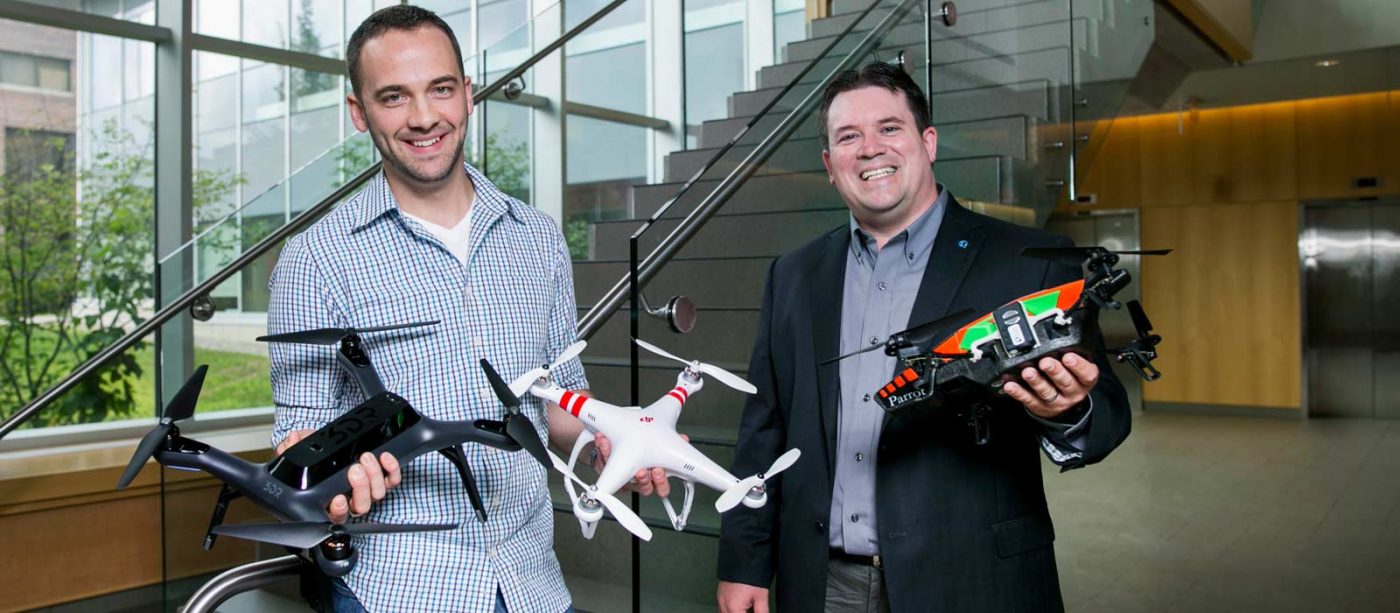
Professors Shawn Kenny of the Department of Civil and Environmental Engineering and Murray Richardson of the Department of Geography and Environmental Studies are also members of Carleton’s interdisciplinary UTILI team.
“The UTILI program provides further evidence of how Carleton is fostering leading research in autonomous systems and related disciplines,” says Rafik Goubran, Carleton’s vice-president (Research and International). “Professors Laliberté, Kenny, and Richardson are playing an important role in training the next generation of innovators in drone technology, which is a major pillar of Carleton’s noted aerospace program.”
When COVID-19 restrictions gradually ease, Laliberté and his partners are planning for portions of UTILI’s UAV short course to be hosted at Area X.O so that students can safely practice flying drones. In the future, Laliberté also plans to run flight training at the facility for Carleton students involved in fourth-year Capstone design projects related to UAVs.
Monday, October 5, 2020 in Aerospace, Autonomous Vehicles, Experiential Learning, Graduate, Industry Collaboration, Interdisciplinary, Research
Share: Twitter, Facebook
